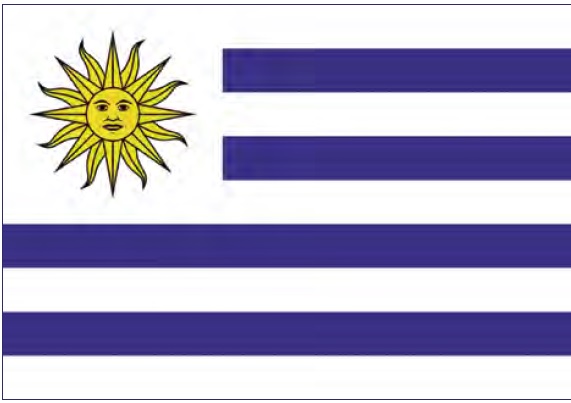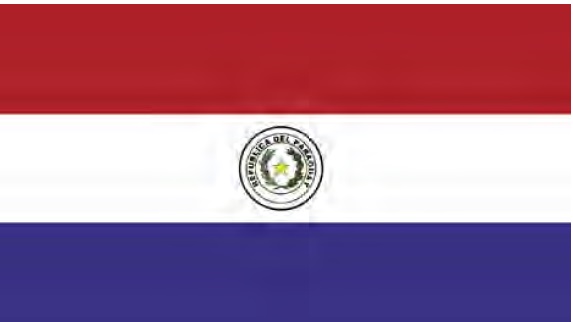Gaming Legislation Update provided by Law Firm Anđelović, Siketić & Tomić d.o.o

Chile
Gambling in Chile began in 1852, and to this date games of chance are permitted and regulated with the emphasis on land-based operators. Casinos are only specifically regulated since 2005. Only this year
(i.e. 2022), the government published a bill proposal regarding the regulation of online gambling. Prior to this, an act passed in 2008 allowed for an online lottery and certain betting activities which were,
however, reserved solely for state-owned monopolies.
The new bill proposal states that all betting entities in Chile will need to hold a general license, valid for a period of five years. Still, it proposes that operators that wish to offer online gaming must have a special
online-betting license that is non-renewable. Chile’s National Congress supported the new Gambling Bill’s adoption, as the Ministry of Finance indicated that it targeted toward collecting over $50 million USD in
taxes per year and shutting down a black market of over 900 unlicensed websites. The maximum number of casinos in Chile is 24 and,in addition to casinos, most other forms of gambling in Chile are state-owned and controlled: sports betting, the national lottery, horse racetracks, and online lottery and sports wagering. The national regulator authorized for the supervision and licensing regime of gaming (excluding the lottery) is the Superintendency of Gaming Casinos.
Operators must submit to all terms outlined by the Super intendency to receive a gaming license. Also, lottery licenses can also be issued to private companies in Chile, whereby this type of license can be obtained by the La Lotería de Concepción.
Since there were no licensed online casinos in Chile until this year and it was basically illegal to operate online-gambling sites in the country, many took advantage of this fact. With the government taking no measures to restrict access to foreign online sports books and casinos, many Chileans used to resort to offshore websites for their virtual betting and gaming experiences. Since there were no legal consequences imposed by the law for those participating in online gambling on foreign websites, this form was popular in the country.
Luckily the government recognized the potential of this sector and the fiscal prospects of online gambling operations, and it will — hopefully soon — structure the market and benefit from it in the coming
years. Yet current developments in the legislative process show that it might be too optimistic to expect the adoption of new law by 2023 as initially envisioned, bearing in mind that certain stakeholders
raised a question regarding an insufficient tax framework for Chile to launch its online-gambling marketplace. Critics argue that the government had failed to explain how Chile’s local and commercial
taxes would be applied to international operators, who should be subject to equal tax terms as domestic incumbents. Thus it remains to be seen how soon the government will address and mitigate
the new issues.
Paraguay
Games of chance, i.e. gambling, are legal in the country since 1943, when the first casino in the country was opened. Up to 1997 and the key gambling legislation (Law No. 10161 from 1997), any legal framework
regarding games of chance was scarce. Online games of chance were legalized and regulated in the period from 2015 to 2018 (comprehensive online gambling legislation from 2017, whereby legalization of online
gambling started during 2015 with an online lottery; in 2017 online casinos followed; and in 2018 online sports betting was finally legalized as well). The competent authority for a licensing (brickand-
mortar and online) and supervisory regime in the country is the National Commission of Games of Chance. Only operators with brick-and-mortar casino licenses qualify for the
application for an online ambling license.
The lottery is a state monopoly in Paraguay and the authorities only license one lottery operator. A gaming license is usually issued for a 20-year term and the licensing process starts with a public tender.
Afterwards the chosen applicants are offered a concession contract. The maximum number of casinos in the country is 25. Only provinces with at least 250 000 residents are allowed to have any casinos (one casino per 250.000 residents) and usually these casinos are required to be attached to a hotel.
Sports betting is in principle state-controlled although licenses are issued to private companies, but no true privatization of such organizers has ever taken place. The state lottery monopoly handles sports
betting primarily, through their vast network of retailers.
As mentioned above, online sports betting is legal since 2018, but there is only one licensed company with the monopolistic position guaranteed in the market until 2023. A new tender for a sports-betting
license is currently ongoing. Slot halls in Paraguay only need permission from local governments to operate. In April 2022, the parliament passed a new law which aims to prevent the installation of slot machines in markets, pantries, hairdressers, pharmacies, and fast-food restaurants, so children and young people do not have exposure and free access to gambling.
With respect to offshore gambling activities, players from Paraguay can still play freely online on unlicensed gambling websites, much to the dismay of licensed operators. Illegal operators on the other
hand are committing a crime and the government does not hesitate to act. Operating an offshore online gambling business is perceived as money laundering by the authorities and these operators are prosecuted
regularly.

Uruguay
Gambling and organization of games of chance has been legal in Uruguay since 1819 with the legalization of a lottery, which was then followed by the legalization of sports betting in 1856. Currently,
the main law regulating the games of chance in the territory is the Act for Gambling Games from 2016.
The National Directorate for Inspection of Betting & Gambling Games is the competent authority in charge of the licensing of gambling establishments in Uruguay, and the General Directorate for Casinos regulates and oversees the sector. Licenses are called concession agreements, whereby casinos can only be operated in designated tourism zones. Furthermore, private casinos must be attached to hotels. Only land-based casinos and gambling halls are licensed and regulated under the state’s laws, and currently there is no formal licensing process for online casinos in Uruguay.
The only form of legal sports betting in Uruguay is the so-called Supermatch (pari-mutuel betting), which is run by the National Lottery, which has a monopoly over sports betting and lotteries. The company also
operates an online platform with an Internet sports book, currently the only exception to the overall ban of online gambling.
As noted above, online gambling is illegal in Uruguay since 2018. However, local players are not prosecuted for playing on offshore platforms. Additionally, the government oversees online
gambling and has ongoing active measures to find and ban offshore sites. In 2019 more than 450 offshore websites where blocked.
Since the last quarter of 2021, Uruguay has moved forward with the regulation of the market due to a decree drafted by the Ministry of Economy. In August 2022 a new draft bill was presented
regulating the online gambling activities. If passed by the parliament, the bill would allow the General Directorate of Casinos of the Ministry of Economy & Finance to regulate online gambling in Uruguay and
to authorize operators with land-based licenses to operate online.
*** Legislation Update was originally published in Casino Life Magazine November 2022 ***
DISCLAIMER: Law Firm Anđelović, Siketić & Tomić d.o.o. wish to avoid inaccuracies and, whilst every precaution has been taken to ensure that information contained in this report is accurate, no liability is accepted for errors or omissions, however caused.




















